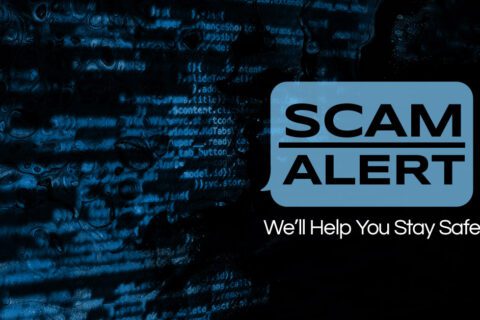Truckers, Watch Out: Don’t Fall For This DOT Phone Scam
An Unknown Number… The Owner-Operator Independent Drivers Association (OOIDA) is warning truckers of a potential phone scam posing as the U.S. Department of Transportation (DOT). An OOIDA member Scott Moderson received a text message claiming there was an error with his USDOT and urging him to call a certain number to avoid interruptions in his driving. SCAM:Confirmed! An internet search of the phone number by Moderson found that the number was not in any way associated with the DOT. OOIDA was then contacted by Moderson for more information. Tom Crowley, a regulatory specialist with OOIDA’s Business Services Department, confirmed suspicions that this is likely a scam. Crowley went on to remind us that the DOT typically communicates via letter or phone call, not text messages. MCS-150 Renewal Scams This year as you’re out on the roads this year, remain vigilant against the tactics and habits of these scammers. Another common scam is an offer to update official documents such as the MCS-150 forms for a fee of up to $300. The MCS-150 form, for example, is a frequent target due to it being required in commercial transportation. Scammers have been known to charge for updating the form, but truckers can do it for free or use OOIDA for $25. Always be cautious of organizations charging high fees for the service. Renew MCS-150 For Free Your first option is to complete and file the required MCS-150 forms online, here. The FMCSA highly recommends due to its speed and user-friendly features such as built-in edit checks and straightforward questions. The estimated time to complete the form online is just 20 minutes. If you do happen to prefer a more traditional approach, you can also submit a printed and signed copy of the form by mail, fax, or through a web form. All of the information can be found on the FMCSA website What’s Up Their Sleeve There are many other types of telephone scams, where scammers may try to steal your money or personal information through phone calls, robocalls, or text messages. These scammers may make false promises or offers, or even threaten jail or lawsuits if you don’t pay them. Stay vigilant and know that such things never appear simply out of the blue via phone call. Another type of scam to be aware of is government grant scams, where scammers try to get your money by guaranteeing you a grant for things like college or home repairs. They may ask for your checking account information and claim that they will deposit the grant money into your account or withdraw a “one-time processing fee.” However, it’s important to remember that government grants are rarely awarded to individuals and are usually given to state and local governments, universities, and other organizations for research and projects that benefit the public. The DOT Doesn’t Text It’s important for truckers to be aware that the U.S. Department of Transportation (DOT) typically communicates through letter or phone call, rather than via text message. If you ever happen to receive a suspicious text message claiming to be from the DOT, it’s best to be cautious and verify the authenticity of the message before taking any action. If you’re unsure about the message and want to be extra safe, you can always reach out to OOIDA or another trusted organization for assistance. Just remember to be vigilant and protect yourself from potential scams. Extra Steps Beyond screening calls and looking out for the things we’ve mentioned. Some drivers will set up separate phone lines in order to further protect themselves from potential scams. This can help to create a clear separation between personal and business communication, which can make it easier to identify potentially fraudulent calls or texts. One of the phone lines can be listed on more public databases, such as the Federal Motor Carrier Safety Administration’s (FMCSA) website, which can be accessed by potential customers. This can be useful for professional purposes, but it’s important to be aware that listing your phone number on a public database can also make it more vulnerable to scam artists. By having a separate, unlisted phone line for personal use, truckers can help to reduce the risk of falling victim to a scam.


Recent Comments